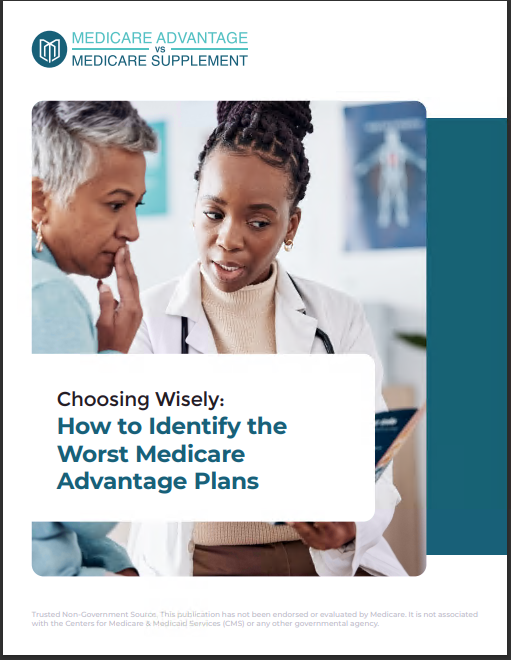Key Takeaways
- Special Enrollment Periods (SEPs) offer flexibility for enrolling in Medicare outside the usual open enrollment periods.
- Qualifying life events such as moving or retiring allow you to enroll in Medicare when you need it most.
Need Medicare Outside the Usual Times? Here’s How Special Enrollment Periods Can Help You Out
Life doesn’t always follow a predictable path, and sometimes that means needing to enroll in Medicare at an unexpected time. Whether you’ve moved, retired, or experienced a significant life event, missing the standard enrollment periods can feel overwhelming. Luckily, Medicare offers Special Enrollment Periods (SEPs) that allow you to sign up for coverage when you need it, even outside the usual time frames. Understanding these periods can help ensure that you’re covered when life throws you a curveball.
1. Missed the Deadline? Here’s How to Get Medicare
Missing the initial or general enrollment periods for Medicare can be stressful, but it doesn’t mean you’re out of options. Special Enrollment Periods (SEPs) are designed for situations where life’s unpredictability interferes with your ability to sign up during the standard times. If you’ve missed the usual deadlines, don’t worry—there are specific circumstances where you can still enroll without penalty.
Qualifying for an SEP means that Medicare understands that life happens. Whether it’s a job change, loss of health coverage, or a move to a new area, these events can qualify you for a SEP. Once you’re eligible, you’ll have the opportunity to enroll in Medicare Part A, Part B, or both, depending on your situation.
It’s important to act quickly once you qualify for a SEP. Typically, the window to enroll through an SEP is limited, so knowing the guidelines and time frames can make all the difference in securing the coverage you need. Make sure to stay informed about your options so you can take action as soon as you’re eligible.
2. Special Enrollment Periods: Your Medicare Backup Plan
Think of Special Enrollment Periods as your Medicare backup plan. SEPs are there to provide flexibility when life doesn’t align with the typical enrollment schedules. Unlike the general or annual enrollment periods, SEPs are triggered by specific events, giving you a safety net when things don’t go as planned.
For example, if you’re still working past 65 and covered by employer health insurance, you might not need Medicare right away. However, if that coverage ends, you’ll qualify for a SEP to enroll in Medicare without facing penalties. This means you can transition smoothly into Medicare coverage without any gaps.
SEPs are especially valuable because they help prevent penalties that could otherwise occur if you delay enrollment past the usual periods. By understanding your eligibility for SEPs, you can avoid these penalties and ensure continuous coverage. Remember, SEPs are designed with your changing circumstances in mind, so make use of them when needed.
3. Life Changes? How to Qualify for Medicare Anytime
Life changes often come with the need for new or different health coverage. Fortunately, Medicare recognizes this and offers SEPs for various life events. Whether you’re retiring, moving, or losing your current coverage, these changes may make you eligible for a SEP.
Retirement is a common trigger for a SEP. If you’ve been covered by employer insurance and decide to retire after age 65, you can sign up for Medicare without penalty during a SEP. Similarly, if you relocate to a new area that offers different Medicare Advantage or Part D plans, you’ll also qualify for a SEP.
Another key life change that can trigger a SEP is losing your current health coverage. This could be due to the end of employer coverage, COBRA expiring, or even changes in your financial situation. When these events occur, it’s crucial to know that you don’t have to wait for the general enrollment period to secure Medicare coverage. SEPs ensure that you can get the coverage you need when your life changes unexpectedly.
4. Moving? Retiring? Get Medicare When You Need It
Moving to a new location or retiring are significant life changes that can affect your Medicare options. When you move, you might find that your current Medicare Advantage or Part D plan isn’t available in your new area. This is where SEPs come into play. You’ll be given a SEP to switch plans or enroll in new coverage that’s available in your new location.
Retirement also brings about the need for changes in your healthcare coverage. If you’re retiring and losing employer-sponsored health insurance, you’ll be eligible for a SEP to enroll in Medicare. This allows you to transition smoothly from your employer plan to Medicare without a lapse in coverage.
It’s important to note that these SEPs have specific time frames, typically starting the month before your move or retirement and lasting for a few months afterward. Acting within this window ensures that you won’t face penalties or delays in getting the Medicare coverage you need. Keep this in mind as you plan your move or retirement to ensure a seamless transition.
5. No Need to Wait for Open Enrollment
One of the biggest benefits of SEPs is that they allow you to enroll in Medicare without waiting for the annual open enrollment period. This can be particularly advantageous if you’ve missed the regular enrollment deadlines or if your life circumstances have changed unexpectedly.
For example, if you experience a change in your financial situation that affects your Medicaid eligibility, you may qualify for a SEP to enroll in Medicare or change your plan. Similarly, if you leave a Medicare Advantage plan or your plan is discontinued, you’ll be eligible for a SEP to find new coverage.
This flexibility is crucial for ensuring that you’re never left without the coverage you need. By understanding how SEPs work, you can avoid the stress of waiting for the next open enrollment period and get the coverage you need when you need it.
6. Big Life Change? Get Medicare Coverage Now
Significant life changes, such as a divorce, death of a spouse, or loss of a job, can leave you in need of Medicare coverage outside the usual enrollment periods. SEPs are designed to provide you with the opportunity to enroll in Medicare during these challenging times.
If you lose your job and, with it, your health insurance coverage, you’ll qualify for a SEP to sign up for Medicare. Similarly, if you experience a divorce or the death of a spouse, you may need to reassess your healthcare coverage and enroll in Medicare. SEPs ensure that you don’t have to wait for the general enrollment period to get the coverage you need.
In these situations, it’s essential to act quickly. SEPs have specific time limits, so it’s important to understand your eligibility and enroll as soon as possible. This will help you avoid any gaps in coverage and ensure that you have the healthcare protection you need during a difficult time.
7. Quick Guide to Special Enrollment Periods
Special Enrollment Periods (SEPs) offer a way to get Medicare coverage when you need it most. But understanding the ins and outs of SEPs can be tricky. Here’s a quick guide to help you navigate the process.
First, it’s important to know what triggers a SEP. Common qualifying events include moving to a new location, retiring, losing health coverage, or experiencing a significant life change like a divorce or death of a spouse. Once you’ve experienced one of these events, you’ll have a limited time frame, typically a few months, to enroll in Medicare.
Next, know that SEPs apply to different parts of Medicare. You can use a SEP to enroll in or change your Medicare Advantage plan, Part D prescription drug plan, or even switch back to Original Medicare. The key is understanding your options and acting within the time frame allowed.
Finally, don’t hesitate to seek help if you’re unsure about your SEP eligibility. Licensed insurance agents or Medicare.gov can provide guidance and help you understand the best course of action based on your unique situation. SEPs are there to help you, so make sure you’re informed and ready to take advantage of them when needed.
When Life Shifts, Medicare Can Still Help
Life is full of unexpected changes, and your healthcare coverage should be able to adapt. Special Enrollment Periods (SEPs) are there to ensure that you’re not left without Medicare coverage when you need it most. Whether you’ve moved, retired, or faced a significant life event, SEPs provide the flexibility to enroll in or adjust your Medicare coverage outside the standard enrollment periods.
Understanding SEPs is crucial for ensuring that you’re covered during life’s transitions. By knowing when you qualify and acting quickly, you can avoid penalties and ensure that your healthcare needs are met. Remember, SEPs are your safety net, allowing you to get the coverage you need, exactly when you need it.
Contact Information:
Email: [email protected]
Phone: 5055553456









